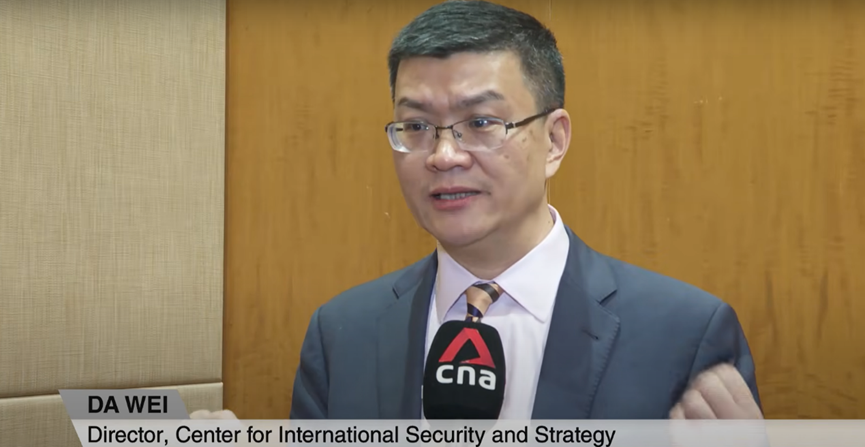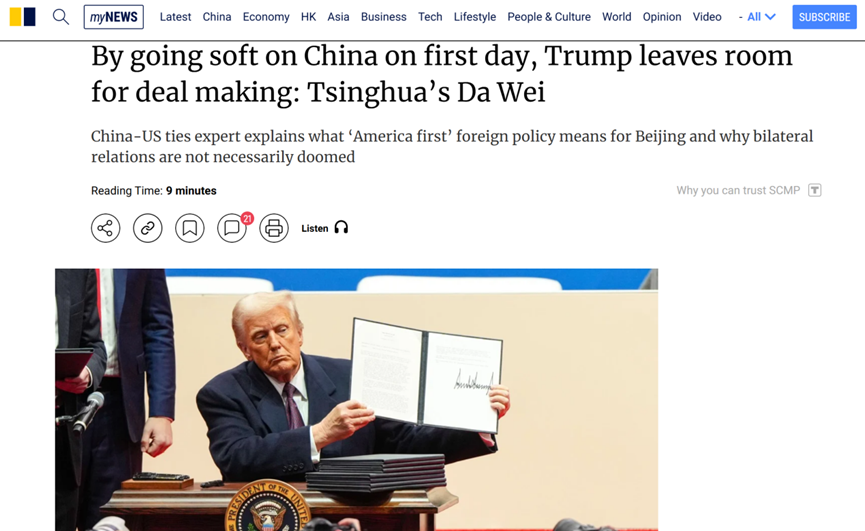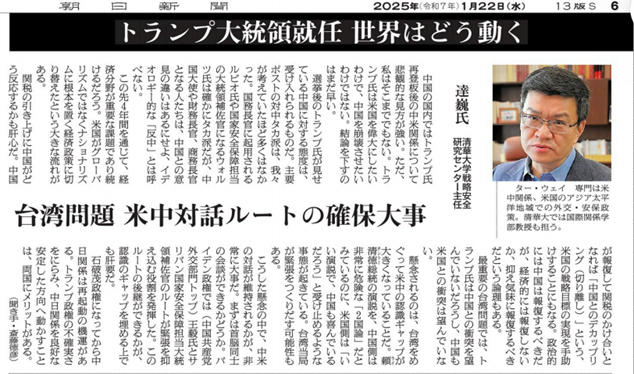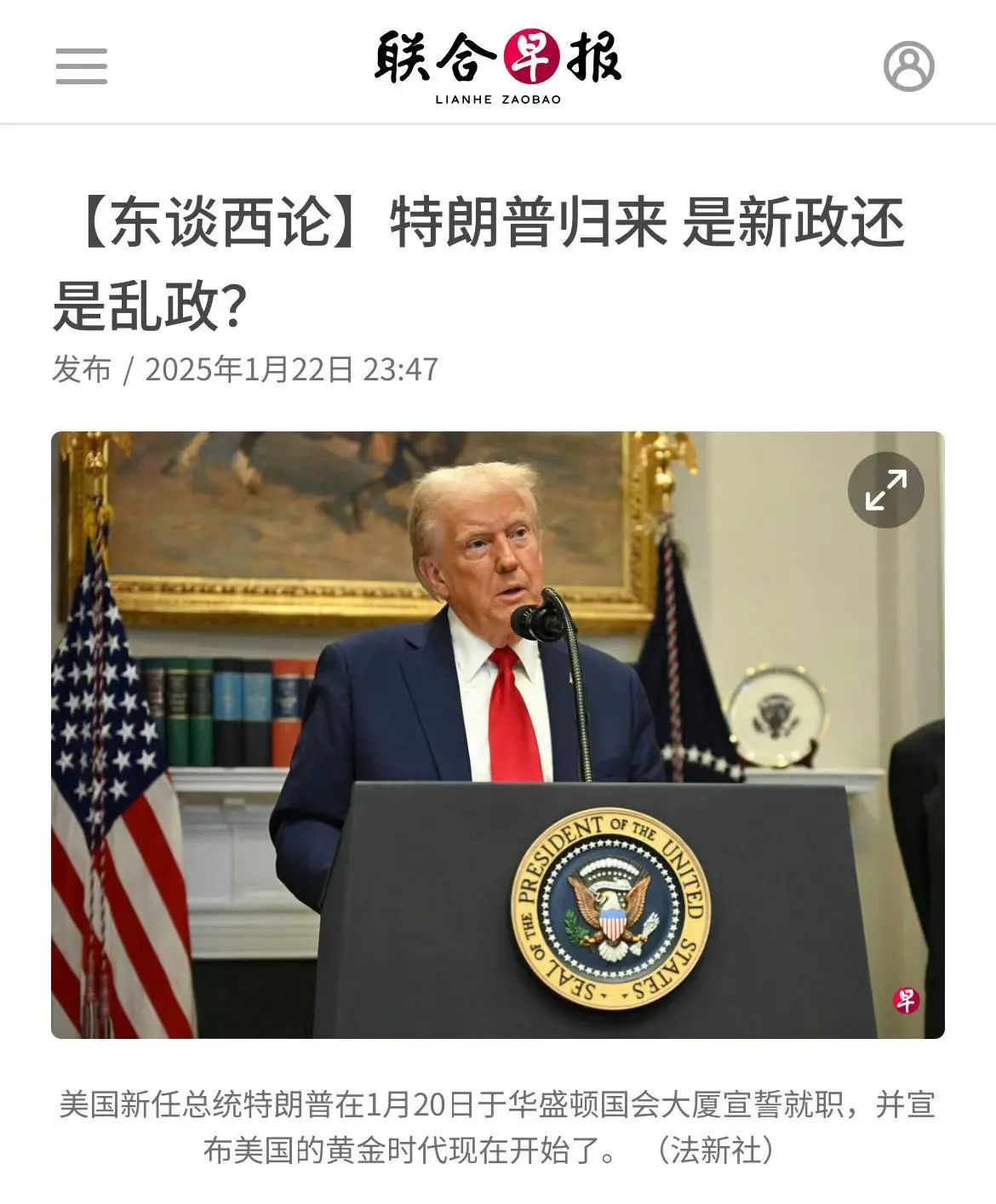On January 20, Donald Trump was inaugurated as the 47th president of the United States. The impact of his return on China-U.S. relations has once again become the focus of global attention. DA Wei, director of the Center for International Security and Strategy (CISS) at Tsinghua University and vice chairman of the China Forum, was interviewed successively by Channel News Asia, South China Morning Post and The Asahi Shimbun, and the Lianhe Zaobao, on the key issues of China-U.S. relations in Trump's new term, The Associated Press and other international media.

In the interview, DA Wei said that Trump's main goal is to focus on domestic affairs, and that since his victory, China and the U.S. have maintained effective communication at the senior level. Therefore, for the time being, there is no need to be overly pessimistic about the impact of Trump's new term on China-US relations, and the future needs to be continuously observed. The current key issues in China-US relations include economic and trade issues, the fentanyl issue and the Taiwan issue. In addition, Trump's return to the White House will not only affect US-China relations, but his policies will also pose a greater challenge to international multilateral mechanisms such as the WTO, WHO and the United Nations.



